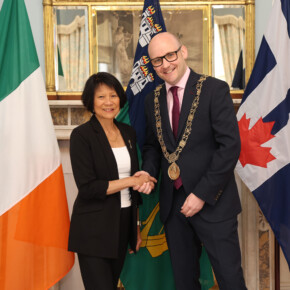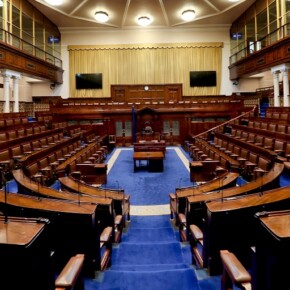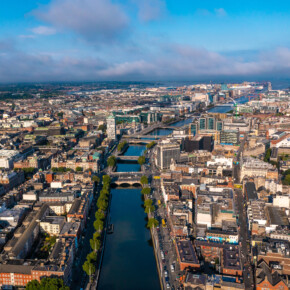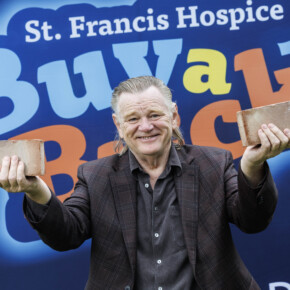Local areas are dying on their knees
Dublin People 25 Sep 2015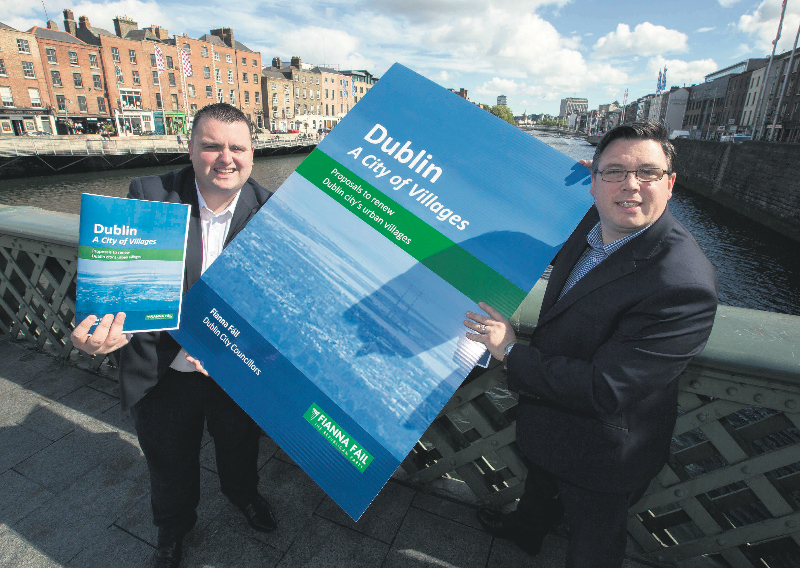
NORTHSIDE areas including Finglas and Ballymun are ‘dying on their knees’ it was claimed at the recent launch of radical proposals to rejuvenate Dublin’s villages.
The proposals are part of a pre-election plan by Fianna Fáil who say they’re needed to bring life and economic activity to the outskirts of the city.
The party wants the establishment of a ‘village team’ for each urban area in Dublin and the roll-out of well-organised village markets and festivals that compliment local businesses and increase footfall in urban areas.
Cllr Paul McAuliffe says radical action is needed to save Dublin’s villages.
“Villages like my own local village of Finglas have been the heart of Dublin communities for decades,” the Fianna Fáil Leader on Dublin City Council said.
“However, many have suffered hugely in recent years due to changes in shopping trends and the economic climate. Sadly, too many of our once vibrant and action-packed urban village centres have lost their vibrancy, and are instead littered with closed down shops, vacant units and a sense of decline.”
Both Finglas and Ballymun have been long promised rejuvenation but up to now the result of plans have been mixed, at best. A planning application for the revamp of Finglas Main Centre – which included refurbishment of existing retail units, a new library and 160 apartments – was lodged and given the green light in 2004.
Regeneration of the village was expected to begin in early 2006 with the decanting of Molloy’s Liquor Store and shops along Seamus Ennis Road as far as the old SuperValu site in Poppintree Mall.
Six shops were also to have been built along the street frontage.
However, a dispute over the value of rights to a car park put a major spanner in the works and prevented progress.
A further plan for 10 buildings of 15 blocks ranging in height from one to six storeys at the Superquinn site also never materialised.
In more recent times the village centre was sold to Wexford based development firm Percolt, who have brought new life into the heart of Finglas but despite welcome improment the development falls short of previous plans.
In Ballymun, the decade long regeneration programme also failed to deliver all that was promised. The old shopping centre is almost an empty shell and a planned multi-million euro development including multiplex cinemas, a bowling alley and high-end retailers was never built.
Cllr McAuliffe believes a clear vision for the future and a concrete framework for growth are required for Dublin’s urban villages to survive and grow.
“We need strong teams of community leaders that are working together to drive that growth and bring jobs back to our village centres.
“This needs to be managed by a dedicated manager, employed through Dublin City Council, who is focused on bringing communities back into our village centres and making them a more attractive place to shop, socialise and do business.”
Co-author of the plan, Cllr Daithí de Róiste, said the proposals centre on maximising untapped potential of villages across Dublin.
“Our villages are being seriously neglected in the economic recovery process,” he said.
“People are being driven out of the city to large shopping centres.”


